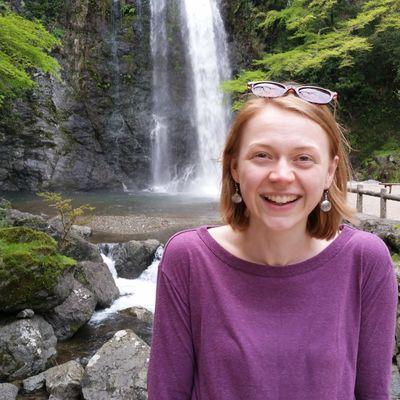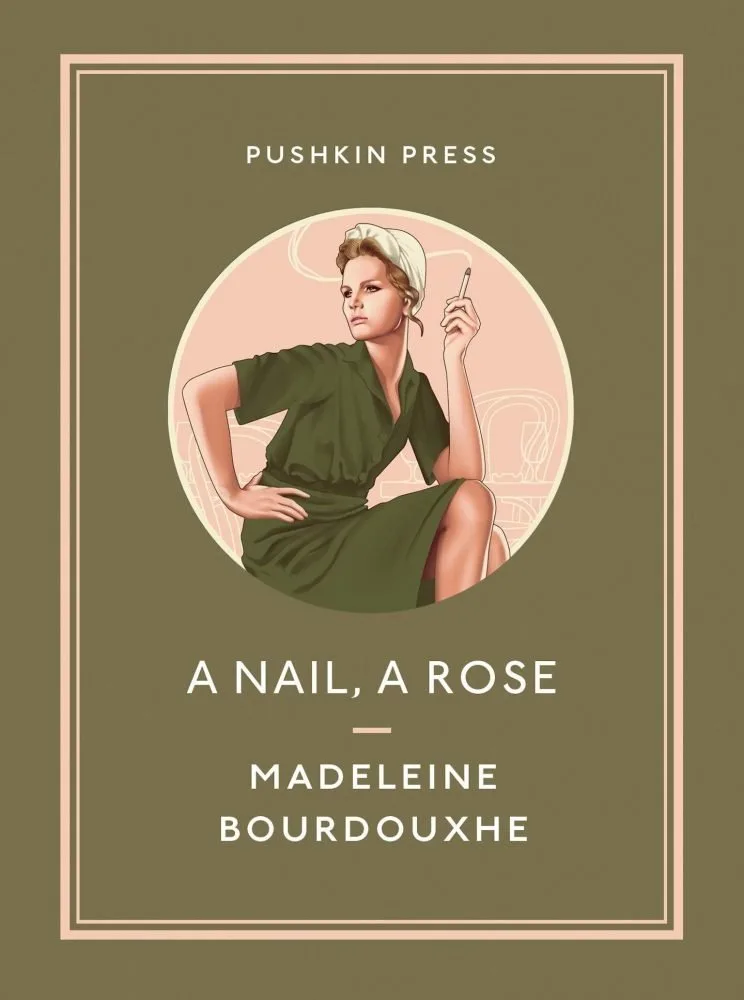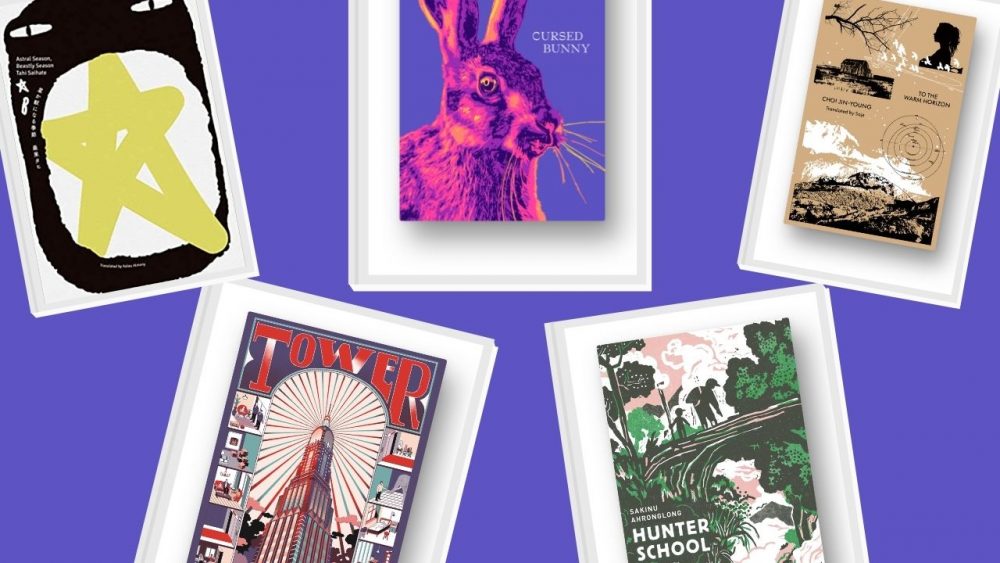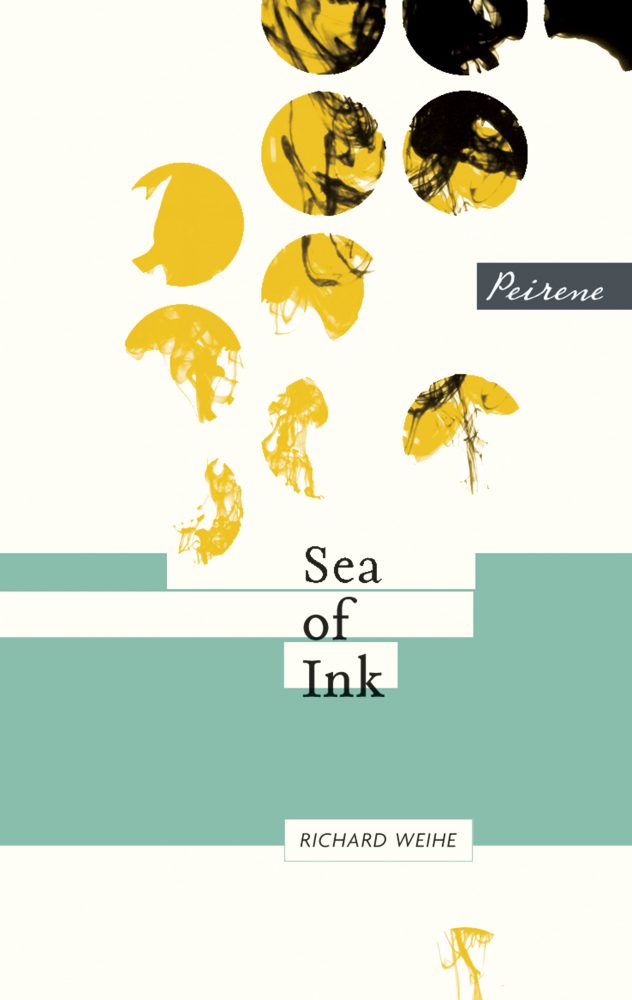Rosie Hedger was born in Scotland and completed her MA (Hons) in Scandinavian Studies at the University of Edinburgh. Rosie was a candidate in the British Centre for Literary Translation’s mentoring scheme for emerging translators in 2012, mentored by Don Bartlett, and has worked on a range of fiction, non-fiction and children’s literature.
Her translation of Gine Cornelia Pedersen’s Zero was nominated for the Oxford-Weidenfeld Award in 2019, and her work on Agnes Ravatn’s The Bird Tribunal won an English PEN Translates Award in 2016. Ravatn’s novel was later selected for BBC Radio 4’s Book at Bedtime, and was shortlisted for the 2017 Petrona Award for Best Scandinavian Crime Novel of the Year.

What made you want to be a translator and how did you get started?
I’ve always been a big reader and started university on an English Literature and French degree, but there was such a heavy focus on so-called classics and very little diversity or contemporary writing, and I remember feeling disappointed – I had expected university to be the place that would open my mind to new writing and perspectives and actually the opposite seemed to be true, in a lot of ways.
I took Norwegian as an elective third subject because I thought it would be fun to learn a language I knew nothing about, and it was a revelation – the classes were small, the tutors were brilliant and the curriculum was so varied. I switched to Scandinavian Studies and never looked back.
We were offered a course in translation from the Scandinavian languages taught by translator Kari Dickson, and we tackled a joyous range of texts. I loved it, and Kari was instrumental in helping me to find my way into translation as a career.
Read More: Essential Norwegian Novels
What are some of the challenges when translating Norwegian?
English translations of Norwegian tend to be around 10-15% longer, so there’s a certain snappiness that comes with Norwegian that it is sometimes hard to replicate in English with the same effect. I was painfully aware of this when working on Gine Cornelia Pedersen’s novel Zero for Nordisk Books – the narrator’s voice just zings in the original, it’s snappy and soulful and the sentences themselves are so concise and filled with power, it pained me whenever the English version was longer, even if it was unavoidable!
I spent a lot of time re-reading the text aloud during the editing phase in every attempt to maintain the rhythm, even if that meant it had to be slightly reimagined in English.
The translation was longlisted for the Oxford-Weidenfeld Prize, which was a huge surprise and a very humbling experience, but my favourite part of the whole ceremony was hearing all of the translations read aloud – Simon Park, who chaired the award panel, read an extract of Zero and it was amazing, he breathed such life into the text.
As translators I sometimes think we become consumed with the problematic elements of the work, the knotty little puns and never-ending sentences that plague us, we can struggle to see beyond them, but hearing someone read a text we’ve laboured over is such a privilege, and this one was just fun. I mean, the book as a whole has some heavy themes, but there was humour there that I had virtually forgotten about. Taking a step back and trying to see the work with fresh eyes can be a challenge when translating anything.
How many languages do you speak and what made you learn them?
I speak Norwegian and can understand Swedish and Danish – I tend not to work with the latter two, but I’ve lived in all three Scandinavian countries for different periods of time. I studied French for quite a few years and have a passive understanding even if I trip myself up when I ever try to speak it nowadays. I take my toddler to a local French playgroup, and learning nursery rhymes and playing games has been a fun way to tap into those buried language skills.
What’s next for you?
I’m currently working on a sample extract of Agnes Ravatn’s forthcoming novel, The Seven Doors – I translated Ravatn’s first novel in English, The Bird Tribunal, and I think she’s a brilliant writer and thinker, so translating more of her fiction has been a delight.
I’m really hopeful that it will be picked up for English publication. Publishing translations in English is often a big risk for publishers – even with the support of grants, which the Norwegians are great at providing, it costs a lot of money. It’s disheartening when you have a piece of work in mind for translation and you know the costs will be prohibitive for any publisher you might be able to persuade of its brilliance.
What advice would you give someone who wants to become a translator?
Some of the best advice I’ve had has been from Don Bartlett, who mentored me as part of my BCLT mentorship. He gave me plenty of practical guidance in terms of the act of translation itself, but he was refreshingly transparent about translation as a career too – making a living in translation can be very difficult, for example, and he advised me early on to do as much translation as I could alongside other work before dropping my hours elsewhere or attempting to switch to full-time translation.
I taught in a university until 2017 and was only able to take on more translation after that contract came to an end, but for years I was balancing 24-37 hours a week at the university, then translating whenever I could squeeze it in. It was hard, but it meant that I wasn’t able to take on more projects than I could reasonably complete in the time available to me, and I feel like that focus on my translation projects at the time really helped me to hone my skills and take a measured approach.
More than anything, though, I would suggest getting to know other translators, both those working with your own language pair, and those working from different languages altogether. There is a world of support and kindness there, and a lot of practical assistance when a particular work or phrase eludes you.
What are you reading right now?
I’ve been reading Not One Day by Anna Garréta (Deep Vellum) – Garréta’s work is fascinating and I bow to Emma Ramadan’s translation genius after reading her translation of Sphinx. Not One Day is doing nothing to change my mind about that.
I’m reading a few Norwegian novels at the moment too – I wish I had the luxury of focusing on one at a time, but the Norwegians take weeks and weeks of holiday in the summer and have a tendency to assign a shedload of work before making for their idyllic mountain retreats (bitter, me?!), so I’m working my way through a pile of reading and translation ready for their return and a busy autumn of book fairs, including Frankfurt, where Norway is set to be Guest of Honour.
If you want to read more translator interviews, check out our recent interview with beloved Korean-English translator Sora Kim-Russell.



